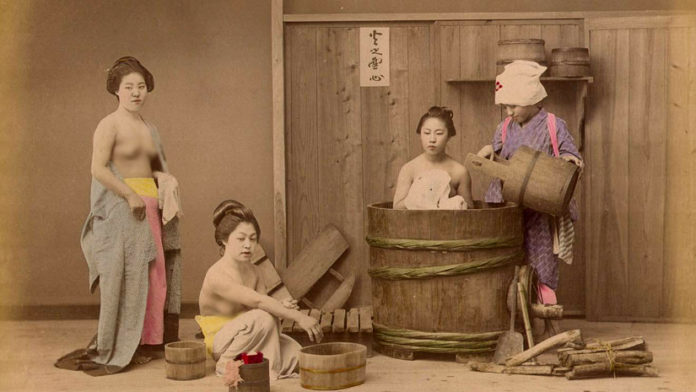Hygiene is one of the most important issues that we take care of. It is one of the most primary and crucial habits that we develop right from childhood. So, you think it was the same when there were no plumbing and no bathrooms? And whether hygiene was given the same importance then, that is being given now?
Well, the answer is No! Hygiene was not considered “essential” in the 18th and 19th centuries. It was rather not thought about at all. And, you know, what else was not thought about? – Body Odor! It was not at all given a time of the day. So, how did people manage their baths, washing, body odor, defecation, periods and other such things- let’s have a look.
Things might seem revolting and funny and down-right disgusting for us at this century. People usually never bathed. It seemed like sexual debauchery and down-right disgusting for us at this century. People usually never bathed- as in complete immersion of self in water- It seemed like sexual debauchery and it was a common misconception that you could get ill if you bath and especially if hot water touches your bare skin. Hence, whenever people bathed, they bathed with their clothes on. And this was after people advocated bathingregularly. . . before that people hardly ever bathed, and did so only on the insistence of their doctors and when ill. They used to get so scared with the mere idea of bathing, that they had to be bathed, and never did so willingly. Royalties had special rooms in their castles for bathing, while most of them had the servants bring bath tubs to their chambers. It took forever to fill the tubs, as the tub had to be filled individually by bucket.
 However, there were public baths, which were open to only nobility, and people used to bath fully clothed! But, it was not the same in the case of the common people and peasants. Water was a luxury, they could not afford individually. Hence, they had to share their “bath”. With the eldest first taking bath and the youngest taking the bath in the end- in the same bath-tub! Peasants submerged themselves in water rarely for a bath and were more likely to wash quickly with plain water and a rag and during warm months, they slipped away to the river for a dip.
However, there were public baths, which were open to only nobility, and people used to bath fully clothed! But, it was not the same in the case of the common people and peasants. Water was a luxury, they could not afford individually. Hence, they had to share their “bath”. With the eldest first taking bath and the youngest taking the bath in the end- in the same bath-tub! Peasants submerged themselves in water rarely for a bath and were more likely to wash quickly with plain water and a rag and during warm months, they slipped away to the river for a dip.
Elizabeth I, is said to bath once a month and she also restored the bath houses in Bath, England.It is said that Beau Brummel bathed every day, and made this mandatory among the aristocrats. He believed “men should smell clean, without the use of perfumes!”
 However, it did not mean that those people didn’t want to be clean- but Bathing was a luxury, that not everybody could afford. In large cities clean water was quite a task to find and then to take a bath, someone would have to carry it from the source to the tub and then carry it all away- no plumbing was available! There must also be the“economical” resources to heat the water to the desired temperature. So bathing, as simple as it is now, was not that simple some 2-3 hundred years ago!
However, it did not mean that those people didn’t want to be clean- but Bathing was a luxury, that not everybody could afford. In large cities clean water was quite a task to find and then to take a bath, someone would have to carry it from the source to the tub and then carry it all away- no plumbing was available! There must also be the“economical” resources to heat the water to the desired temperature. So bathing, as simple as it is now, was not that simple some 2-3 hundred years ago!
 They however, did wash their faces, hands, arms and legs, besides washing their intimate areas regularly. If, saving water was a problem, people tried the dry baths and sponge baths which are rather effective way of saving water and also to keep oneself clean.
They however, did wash their faces, hands, arms and legs, besides washing their intimate areas regularly. If, saving water was a problem, people tried the dry baths and sponge baths which are rather effective way of saving water and also to keep oneself clean.
 However, nobility then used copper bathing tubs lined with linen from the later half of the century.
However, nobility then used copper bathing tubs lined with linen from the later half of the century.
By: Archa Dave




























